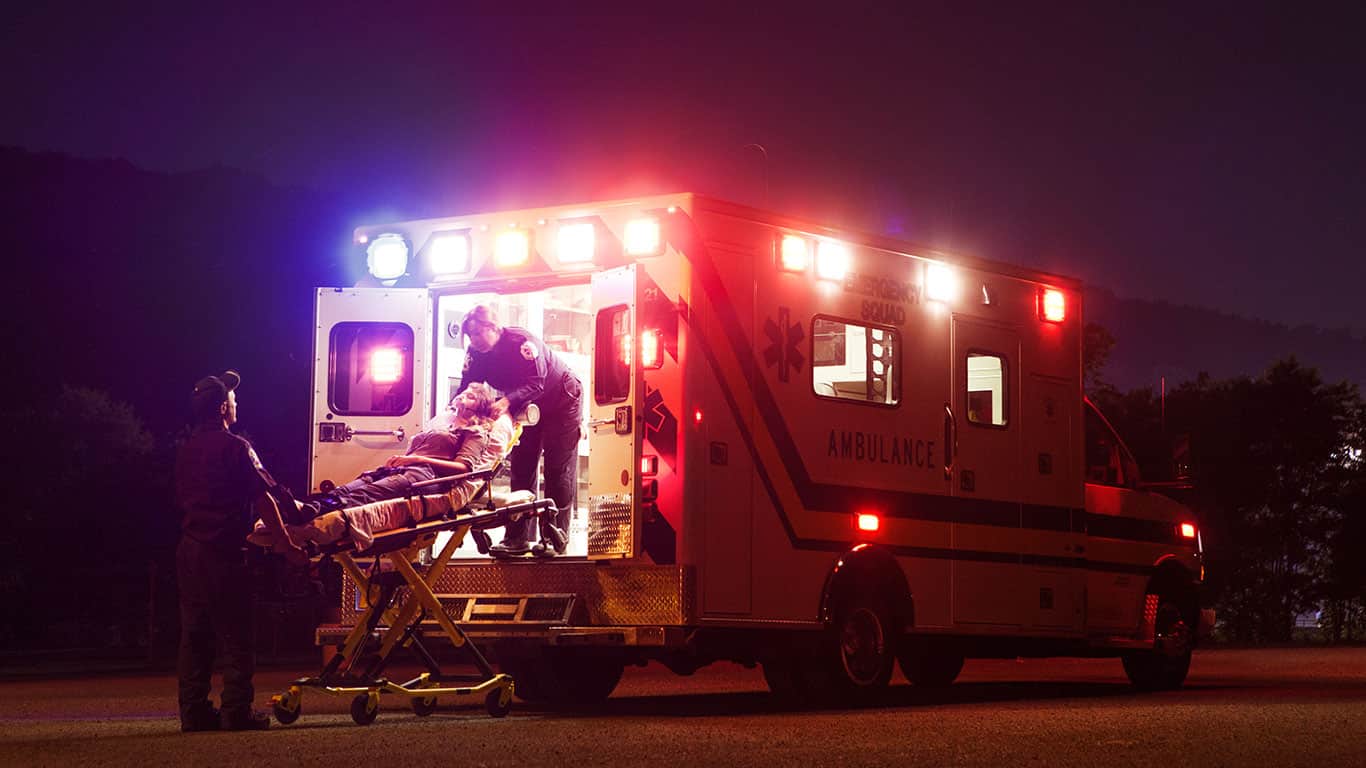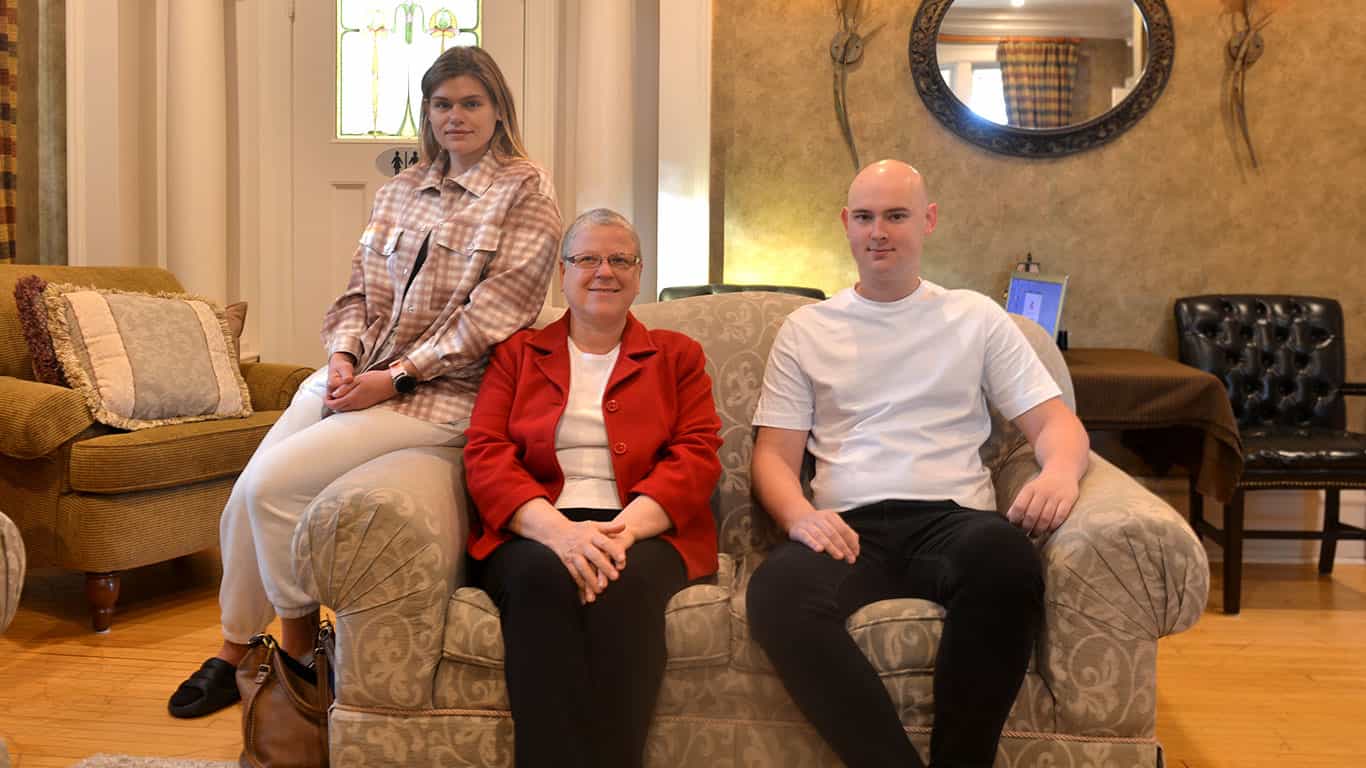Waterloo Region paramedics lost a total of 465 days in offload delay times through the first nine months of this year. That’s up dramatically from the 249 days lost during all of 2021.
Offload delays measure the gap between the time an ambulance arrives at the hospital and the patient is transferred into the hospital’s care, releasing the ambulance back into service. Paramedics can spend hours in such delays.
The increased figures are part of the region’s semi-annual key performance measurement indicators for paramedic services, released Tuesday.
The report indicates an increase in several categories when compared to last fall’s report. These include an increase of 10.3 per cent (or 5,975) of ambulance calls, an additional 13 seconds in response time (9:09 minutes per call) and unit utilization, the per cent of time ambulances and emergency response units are engaged in responding to calls which is up 8.4 percentage points to 47.4 per cent.
Paramedic Services is currently losing an average of 35.8 hours per day in offload delays, an increase of 23 hours and 18 minutes per day. As of October, the services were in code yellow, meaning there are fewer than four ambulances available for an average of one hour and 50 minutes per day, over the previous 12 months. They were in a code red, meaning no ambulances were available to respond to calls an average of four minutes and 50 seconds a day.
The offload delays and the unit utilization has negated the two additional ambulance shifts added in July of this year, the report said.
At the region’s community services committee meeting Tuesday, North Dumfries Mayor Sue Foxton questioned if the province was taking steps to alleviate some of the pressures paramedic services are seeing.
“I thought there was something put in to help alleviate that. And I thought it was coming from the province where they had to offload to a new one so the ambulances aren’t caught in the base. When I was on the committee examining EMS, they said 65 per cent of their time was spent in base and when we added more ambulances, all we did was create more parking in the base,” she said.
However, according to acting department chief Rob Crossan, the province has not laid out any concrete plans.
“There’s been no changes in the time it takes to offload a patient. There has been nothing from the province to force the hands, if you will, of the hospitals into offloading. There’s no place to offload them, so that’s the issue. It’s nurses. It’s beds,” Crossan said.
“We do occasionally double up crews so that one crew will watch two patients. There isn’t the physical space, there isn’t the stretchers, and we are obligated on a great number of our patients to continue with cardiac monitoring.”
The treatment will often occur in the hospital hallways, Crossan said.
“We are legislatively not allowed to withdraw the care that we’re giving. So we can’t send the ambulance without a [defibrillator] without a monitor, without a bed. So that’s really where the issue lies,” he added.
Coun. Jim Erb said it “is quite discouraging to try and keep ahead of this.”
“It just seems that we’re going two steps forward and three steps back with the offload delays and the amount of resources that we’re putting into hiring new ambulances and in the new 12-hour shifts,” Erb said.
While Coun. Tom Galloway suggested looking into having firefighters step in, they do not have formal medical training, Crossan noted.
“Nor are they under a base hospital physician or any type of college. So a paramedic cannot hand off care of a patient to somebody that is less qualified than that paramedic. Under the provisions in the Ambulance Act, that would be abandoning the patient. We cannot hand off care to a firefighter as well,” he said.
This would also negatively impact the region’s fire services, Crossan added.
“We have I believe 32 ambulances at our peak. The Waterloo Fire Department has four fire trucks. So are we going to trade off putting an ambulance on the road and taking a fire truck off the road to watch our patients?”
Dr. Hsiu-Li Wang, the region’s medical officer of health, said offload delays are an issue across the province.
“This council has, I think, been very forward thinking in terms of supporting the paramedic services master plan that called for additional ambulances over the years to support the population growth of Waterloo Region. They recently supported the additional ambulances as part of our move to a high-growth scenario, given the indicators that we’re seeing and also the fact that our population is growing very rapidly,” she said.
According to Wang, the Ontario Association of Paramedic Chiefs has given recommendations to the province regarding changes the government could make to the protocols affecting dispatching and offloading at hospitals.
“So my recommendation would be that we continue to support associations… to continue to engage with the provincial government to look at solutions that would affect the services across the province,” she said.









